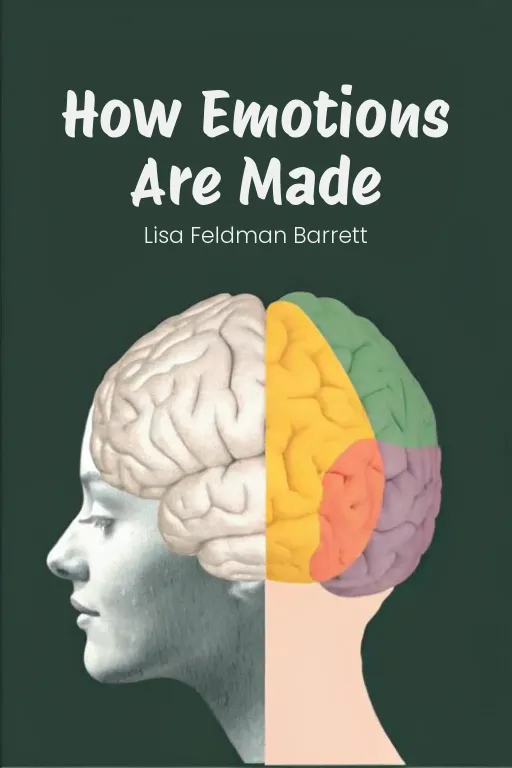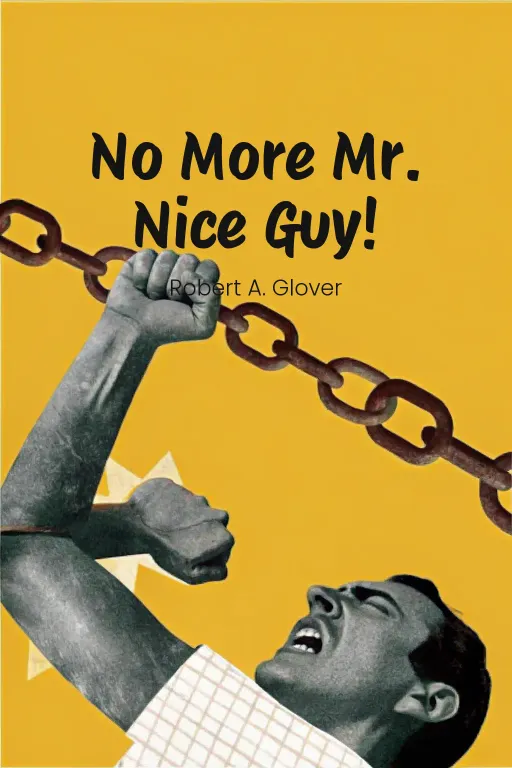
Affairs: Can Your Relationship Survive?
Podcast by The Mindful Minute with Autumn and Rachel
Rethinking Infidelity
Introduction
Part 1
Autumn: Hey everyone, welcome back to the show! Today we're diving into a pretty heavy topic: infidelity. More directly, cheating. We're going to explore why it happens, whether relationships can actually bounce back from it, and what it all says about love and commitment today. Rachel: Exactly! Because who doesn't love a deep dive into betrayal and heartbreak? Jokes aside, Autumn, this is one of those topics everyone secretly obsesses over, but nobody really wants to discuss openly. So, what's our angle this time? Autumn: Well, our perspective comes from Esther Perel, particularly her book "The State of Affairs." She really challenges the way we usually think about cheating. Instead of just pointing fingers, she asks us to consider affairs as a way to uncover deeper truths about desire, intimacy, and even our own vulnerabilities. Seriously, it's fascinating stuff. Rachel: Hold on. Are you saying cheating is…like, some kind of existential quest? "Sorry, honey, I wasn't unfaithful, I was just, uh, mapping the uncharted territories of my inner self!" Sounds like a convenient excuse generator. Autumn: Not at all! Perel definitely does not excuse infidelity, but she argues that it often points to unmet needs – psychological and emotional – within individuals and within the relationship itself. And she looks closely at what happens after an affair comes to light: the hard work of healing, and how some couples actually use the experience to build something...better. Rachel: Alright, I'm intrigued, despite my initial skepticism. So, what's on the agenda for today's conversation? Autumn: We're going to break down infidelity into three key areas. First, we'll explore the motivations behind it – and trust me, it's not always about what you think. Then, we'll tackle the aftermath – the betrayal, the guilt, all the complex emotions that surface. And finally, we'll look at how Perel reframes the idea of fidelity itself, moving away from this rigid, rule-based view to a more flexible and honest approach to commitment. Rachel: So, we’re going from the initial spark of temptation, through the messy explosion of exposed secrets, and somehow, we're landing on… hope? That's quite the journey, Autumn. Lead on!
Understanding Infidelity
Part 2
Autumn: Okay, Rachel, so let's dive into why people cheat. It's way more complex than just labeling people as "bad," you know? Esther Perel argues that infidelity often stems from something missing within the individual, not necessarily a flaw in their primary relationship. Take Don, from her book. He didn't see his affairs as a rejection of his wife but as a desperate attempt to feel “more alive.” He craved that rush of desire, a reminder of the parts of himself that he thought he'd lost in the daily grind. Rachel: Ah, so Don wanted to relive his glory days, right? Instead of, say, taking up salsa dancing, he opted for the relationship equivalent of a fireworks display? Autumn: Kind of, but it’s more layered than that. Perel emphasizes it's about reconnecting with a forgotten part of their identity—ambitions, passions, that adventurous spirit. It wasn’t that Don’s wife, Kathleen, was lacking; it was that Don had lost sight of himself within the routine. Perel calls it the paradox of modern relationships: we expect our partners to be everything—comfort, security and excitement, novelty. It's a tall order, almost impossible to fulfill. Rachel: I get that relationships can fall into a rut. Here’s what I don’t get: Why not just talk to your partner about feeling stuck? Work on rediscovering that spark together instead of going for the secret, midlife-crisis rendezvous? Autumn: That’s the million-dollar question, right? And Perel does address it. For many, expressing dissatisfaction feels like a risk. What if the partner doesn’t understand? What if it makes things worse? Cheating, as destructive as it is, becomes this shortcut—a way to reclaim those lost parts without directly confronting the vulnerabilities in the relationship. And let's be real, affairs often have this allure because they exist outside of responsibilities, offering this fantasy of freedom. Rachel: So, it’s not about the other person being superior; it's about the cheater trying to escape their current reality? A sort of ego boost, maybe? Autumn: In a way, yes, and Don’s case really highlights that. His affair wasn’t about dissatisfaction with Kathleen; he said he loved her deeply. But it made him feel alive, even if temporarily. Of course, the experience left him ridden with guilt and ultimately forced them to confront what was missing in their marriage - that deeper communication and emotional connection. Rachel: So, instead of addressing it head-on, he chose the scenic route to self-discovery that ended up blowing up his marriage. Got it. Autumn: It's tragic, but it’s also a very common scenario. And it brings us to Perel's idea that infidelity is often about wrestling with this tension between security and desire. She calls this the "love-lust split" where the stability of love in long-term partnerships clashes with the desire for freedom and novelty. It’s an underlying conflict that most couples face, whether they acknowledge it or not. Rachel: You mean the age-old "Can I have my cake and eat it too?" dilemma? People want the security of a relationship, but some secretly crave the thrill of something forbidden. Autumn: Exactly! Perel argues it’s not about choosing one over the other, but about acknowledging these conflicting needs and having open, honest conversations about how to navigate them. When this tension is ignored, it simmers, making betrayal more likely. By actually facing it, couples have a chance to prevent that urge to seek that thrill elsewhere, or at least create boundaries that align with their values. Rachel: Hold on, so you’re saying couples should... negotiate fidelity? Like, schedule "flirting with strangers" time? How does that actually work? Autumn: It's more about creating a shared understanding of what fidelity means for each relationship. In modern relationships, what infidelity even means has become less clear-cut, especially with technology. It's not just about physical intimacy, but also about emotional connections, which we see in the case of Karen and Jeff. Karen felt deeply betrayed when she discovered Jeff was having intimate, personal conversations with his ex-girlfriend, even though Jeff insisted it was harmless because it wasn’t physical. Rachel: Right, because texting isn't in the wedding vows. But isn't this where the term "micro-cheating" gets tossed around for everything from liking old Instagram posts to sending late-night memes? Autumn: It might sound trivial, but here’s the thing: emotional infidelity can hit even harder than physical affairs. Karen wasn’t just upset about the sharing; it was about what Jeff wasn’t sharing with her. Emotional cheating points to unmet needs in the primary relationship - that lack of connection or vulnerability. And their differing views of betrayal really highlight how important it is for couples to openly define their boundaries, instead of just assuming they're on the same page. Rachel: Right, because nothing sparks romance like a PowerPoint presentation on relationship rules: no heart emojis with anyone but me. Autumn: It's not about strict rules, but about transparency. Perel advocates for continuous dialogue - checking in on each other's emotional and physical needs. It prevents those small voids from becoming huge chasms. Rachel: Okay, but from a cynical point of view, isn't all of this a bit too idealistic? Affairs happen because one partner seemed perfectly happy. What do you do when someone is suddenly entangled in a secret hotel tryst? Autumn: It’s a valid point. Perel even acknowledges how unconscious these impulses can be. The key is creating a relationship climate where those deeper emotions can surface sooner, before the damage is done. It’s not a quick fix, but the more we challenge these rigid ideas of relationships as static “contracts," the more we can adapt to the realities of human needs in long-term love. Rachel: So, it’s about replacing the landmines with an open forum? Autumn: Exactly. And questioning what it means to be faithful isn’t about abandoning morals, it's about being more conscious and compassionate in how we define love, loyalty, and connection.
The Emotional Fallout of Betrayal
Part 3
Autumn: Right, so, understanding why infidelity happens is crucial, but what about the emotional fallout after the fact? Betrayal leaves wreckage, right? This part is about dealing with that – how couples cope with the immediate aftermath, make sense of it all, and either rebuild or, you know, redefine what they have. Rachel: From heartbreak to… enlightenment? Wow. Forgive my skepticism, Autumn, but how do you even begin to deal with something that feels like an emotional nuclear bomb went off? Autumn: It is incredibly tough, absolutely. Esther Perel outlines a three-phase journey: crisis, meaning-making, and visioning. The crisis phase, that's right when the affair comes to light. Imagine discovering the person you trust most has been hiding this huge secret. Disbelief, anger, sadness, jealousy – it's a total emotional tsunami. Rachel: “Tsunami” feels like an understatement. Emotional apocalypse maybe? Okay, so the betrayed partner is reeling, but what about the person who cheated? Are they just… skipping through the daisies? Autumn: <Laughs> Definitely not. They go through it too – guilt, shame, confusion, maybe even defensiveness. They're facing the consequences of their choices, the pain they've caused, and often their own internal struggles. Take Gillian and Costa, for example. After Costa's infidelity came out, Gillian said their communication was a total rollercoaster – one minute connected, the next, at each other's throats. Costa felt buried under guilt and just didn't know how to support Gillian or fix things. Rachel: Gillian, I imagine, was torn between wanting to make things work and wanting to, you know, throw all of Costa's belongings on the front lawn. Autumn: Pretty much, yeah. She felt conflicted – part of her did want to reconcile, but the betrayal had also shattered her sense of self. Who was she in this relationship now? Was their love even real? These reactions are completely normal during the crisis phase. That's why professional help can be so crucial. Couples often need someone to help them navigate the mess and start sorting through those feelings. Rachel: So, therapy isn’t just about sitting on opposite ends of the couch and giving each other the evil eye? Autumn: Nope. Therapists create a safe space where both people, but especially the one who was betrayed, can express their feelings without everything spiraling into a fight. There are tools, too, like journaling or emotional letter-writing, that can help process intense feelings in a less reactive way. Gillian and Costa found those helpful. Gillian used letters to express her pain, not as accusations, but as reflections. Giving Costa the space to actually hear her instead of just getting defensive. Rachel: Okay, but journaling sounds… slow. Like using a water pistol to put out a forest fire. Doesn't it just drag out the pain? Autumn: It’s not about dragging anything out, it's about processing it in a constructive way. Emotional healing isn’t instant, remember? Suppressing emotions or pretending everything’s fine? That will just delay the recovery. Acknowledging the anger, the sadness, the uncertainty, that’s the first step. Therapy teaches couples how to sit with that discomfort and rebuild a foundation of trust, or, honestly, to decide if that’s even what they want. Rachel: Alright, so once the yelling and crying subsides, what then? Autumn: That’s where the meaning-making phase comes in. After the initial shock, couples start asking the big questions: Why did this happen? What does it mean for us? Both partners dig into the whole story of the affair – instead of just seeing it as this awful act of betrayal, they explore what it reveals about the relationship itself. Gillian, for instance, realized that Costa's affair had developed, at least in part, because they’d been emotionally distant for years. That doesn't excuse anything he did, but it did help her understand where things went wrong. Rachel: So, the betrayed partner now gets to shoulder some of the responsibility? That sounds… adding insult to injury. Autumn: It's less about blame and more about taking shared responsibility for the state of the relationship. Michele Scheinkman's "dual perspective" approach is helpful here. She emphasizes balancing accountability with empathy. The person who cheated, like Costa, has to take full responsibility for their choices, period. But at the same time, the couple looks at patterns in the relationship that may have led to that emotional distance. Things like unspoken frustrations or differing expectations. Rachel: So, meaning-making... it’s like playing relationship detective, uncovering the underlying issues that were there before the affair even happened? Autumn: Exactly! It’s also about understanding someone's motivations without justifying them. Let's go back to Karen and Jeff. Karen was devastated when she found out Jeff had been sharing his feelings with an ex. He insisted it wasn’t cheating because it wasn’t physical, but Karen felt betrayed because he was confiding in someone else instead of her! When they talked it through, Jeff realized how disconnected he’d felt in his marriage. And Karen saw how her tendency to avoid conflict had made communication harder for them. Rachel: So, they both had to admit their role in the breakdown, and not just, you know, get stuck on who was “right” or “wrong.” Autumn: Exactly. Esther Perel emphasizes that meaning-making isn’t about absolution, it’s about clarity. It’s about recognizing the affair as a symptom, not the sole cause, of the problems in the relationship. Both partners come away with a clearer understanding of what wasn't working and what they value moving forward. Rachel: And that, I presume, leads us to the final phase, visioning? Autumn: Bingo. Visioning is about deciding what happens next. Do you rebuild trust and try again? Or does the relationship end, with both people, hopefully, better prepared for the future? If the goal is to reconcile, it’s less about erasing the past and more about creating a new "contract" together – setting expectations, boundaries, and shared goals. Rachel: So, not going back to how things were but creating something… different? Autumn: Precisely. Costa and Gillian are a great example. Costa had to learn to show genuine remorse without just retreating into guilt or defensiveness. Gillian, in turn, had to decide if forgiveness was even possible. Together, they worked to rebuild trust by being accountable, communicating openly, and being vulnerable with each other. Rachel: And for those playing along at home, "shared vulnerability" means what? Talking openly while both partners feel utterly exposed and awkward? Autumn: Yes, pretty much. Vulnerability isn’t easy, but it’s essential. When couples like Gillian and Costa take small steps toward emotional intimacy – checking in, sharing fears, being transparent – it can really help rebuild that foundation of trust. Rachel: And for the cynics out there, what happens if one partner slips back into old habits? Autumn: That’s where accountability comes in. Perel suggests practical tools like frequent check-ins or "love maps," which are shared roadmaps of what both partners want and need long-term. The point is not just to rebuild trust, but to sustain it in a way that feels real and mutual. Rachel: It sounds like a long road, though. I mean, not everyone is going to make it to the other side, right? Autumn: That's true. But for those who do, the outcome can be transformative. This process isn't just about fixing a relationship, it's about growth. As Gillian put it, "We'll never be the same, but maybe we could be something different. Something better." That's the core of this – if couples face the discomfort and work together, betrayal can actually become a catalyst for deeper connection instead of just irreparable damage.
Redefining Fidelity and Commitment
Part 4
Autumn: Navigating this emotional turmoil really opens things up for redefining relationships and commitments. And that's where Perel really challenges us to ask the big questions: What does fidelity even “mean” today? How do couples turn that pain into something positive? And, ultimately, how do we go from just dealing with betrayal to actually reimagining love and loyalty? Rachel: Right, so we're moving on from heartbreak emergency procedures to, like, relationship makeover sessions? Sounds ambitious, doesn’t it Autumn? Autumn: It is ambitious, Rachel, absolutely, but I think it's necessary. Perel's final argument in The State of Affairs is that relationships these days aren't just about survival or convenience anymore. They're also about personal growth and self-expression. Along with that, we also need new definitions of fidelity, definitions that really value creativity over tradition. It's not just about fixing what's broken; it's about imagining what “could” be. Rachel: Okay, big picture stuff. But let’s get down to specifics. Are we tossing out the whole monogamy playbook here, or just making a few notes in the margins? Autumn: Well, it’s less about throwing out the playbook, and more about tailoring it. I mean, for centuries, strict monogamy has been seen as the gold standard, right? But in a world where everyone has such different needs and desires, that one-size-fits-all thing just doesn't always work. Redefining fidelity means finding what feels real for your relationship, instead of just following what society tells you to do. Rachel: So, relationship customization—monogamy, but bespoke? I like that, Autumn. Autumn: Exactly! Perel calls it moving from inherited ideas to crafted agreements. You know, one really powerful example she gives is of Don and Kathleen. Don had been unfaithful, and at first, he blamed Kathleen, saying she wasn't emotionally available. But in therapy, it came out that the affair wasn't really about Kathleen. It was about Don feeling disconnected from himself. Rachel: Hold on a sec. Is this one of those "It's not you, it's me... but also, still a little bit you" situations? Autumn: More like, "It's me, but it affects us both." Don's story was full of excuses at first – classic avoidance. But as they went deeper in therapy, he had to really question those excuses. Remember that crucial question from the therapist, "Is that even as true as you think it is?" That forced Don to actually look at himself instead of just blaming Kathleen. Rachel: Right, and what about Kathleen in all this? Like, how much patience are we expecting her to have while he’s off on this self-discovery detour? Autumn: Kathleen had her own journey too, of course. The betrayal was devastating, but she was determined to rethink what fidelity and commitment meant to her. Therapy really helped both of them realize that their marriage was about more than just sex. It also needed emotional honesty and vulnerability, from both of them. Together, they started redefining what loyalty would look like moving forward – a mix of transparency, depth, and a shared commitment. Rachel: Okay, but does redefining fidelity just mean making it easier to forgive? Or is it more about changing the entire relationship? Autumn: It really depends on the couple. And it’s not just about forgiveness; it's about getting clear on things. It's about asking: What does commitment really mean to us? How do we balance our own needs with our shared life? Some couples recommit even more strongly to traditional monogamy, while others try different things. And that brings us to thinking differently about monogamy itself. Rachel: Alright, Autumn, now we’re getting into the juicy stuff. Are we talking open relationships? Casual arrangements? How far are we pushing these boundaries? Autumn: Exactly, exploring the boundaries and figure out what is right for the couple. Perel points out that some people struggle with monogamy because they feel it’s restrictive. In fact, someone in one of her workshops even asked, "Wouldn't we avoid so much pain if we just got rid of monogamy altogether?" It started a huge debate. Rachel: So half the room was nodding in agreement, and the other half was clutching their pearls, right? Autumn: Pretty much! Some people argued that non-monogamy can create more room for honesty about desires that people might otherwise hide. One person compared it to friendships: "We have multiple friends, why not multiple lovers?" The idea is that you can still be emotionally close without being sexually exclusive. Rachel: And there were definitely some objections to that, right? Autumn: Absolutely. Others defended traditional monogamy, saying it provides security and allows you to really focus on building a deep connection with one person. The argument was that exclusivity creates an emotional safety that you can't get in other types of relationships. But everyone agreed on one thing: whether you’re traditional or not, you need open, honest communication. Rachel: Okay, let me play devil’s advocate for a second here. Isn't all this just overcomplicating things? I mean, shouldn’t trust be simple? Either you’re faithful, or you’re not. Why complicate it with all these "alternative models?" Autumn: That's a fair question, Rachel, but it kind of ignores how complex people are. Relationships aren't just about being faithful or unfaithful. They're complex systems shaped by each person's history, culture, and changing needs. Having intentional conversations helps couples navigate those complexities. Without them, even monogamous couples can get stuck in ruts or have unmet expectations. Rachel: Okay, but tell me this: when do we stop defining relationships by what we want and start thinking about the impact on society? Relationships don't exist in a vacuum, so what about the pushback against going against the norm? Autumn: That's a valid point, and Perel does address it. Redefining fidelity doesn't mean ignoring centuries of social norms. It means realizing that those norms aren't inherently bad, they’ve just become too rigid. By adding some flexibility, couples can respect tradition while still being true to themselves. It’s more of a thoughtful evolution than a revolution. Rachel: Alright, fair enough. So we’ve got Don and Kathleen redefining loyalty, Karen and Jeff rebuilding trust after that text message fiasco, and even some philosophical debates about ditching monogamy. What’s the main takeaway here, Autumn? Autumn: The main point is that fidelity – whether we’re talking about monogamy or something else – needs to feel meaningful and relevant to the people in the relationship. It can’t just be something you blindly inherit. Perel’s core message is: by encouraging authenticity, transparency, and mutual respect, couples can create commitments that are true to who they are, not who they think they should be. Rachel: So, crafting those commitments isn’t a sign of weakness, but a sign of strength? Autumn: Exactly! Redefining fidelity means being brave enough to have those difficult conversations, create agreements together, and embrace vulnerability. It’s not about huge changes, it’s about conscious connection.
Conclusion
Part 5
Autumn: Okay, so, to sum it all up, we've really dug into the whole infidelity thing—what makes people do it, the emotional mess it leaves behind, and how couples can try to make it through. Esther Perel wants us to stop with the easy judgments and really look at the deeper stuff, like what's missing in the relationship, that push and pull between wanting things to stay the same and wanting something new, and how important it is to just talk openly to keep things strong. Rachel: Yeah, and for us skeptics, like yours truly, the takeaway isn't that cheating is a good thing, or that we’re totally changing the rules of love. It's that understanding why it happens can help us rethink how we look at loyalty, and also how we connect with each other—with honesty and, you know, a genuine curiosity. Autumn: Precisely. Perel is basically daring us to see fidelity not as just a bunch of strict rules, but as something we actively create, based on trust, being vulnerable, and having a common goal. Whether you're into sticking with the classic, you know, one-person thing, or trying something a bit more open, the main thing is to be deliberate about it. Rachel: And to be brave enough to ask some tough questions. Like, "What does this relationship actually need to be healthy?" And maybe, "Do we need a prenup, or should we just set some ground rules about texting?" Autumn: Exactly, Rachel. So as you're going about your day, maybe just think about this: What does loyalty actually mean to you? Is it just about tradition, or is it more about what you personally believe and need? Whatever it is, the important thing is that it's something you and your partner decide together—with honesty, respect, and, you know, being open to change. Rachel: And, fingers crossed, without any hidden getaways or shady DMs along the way.









